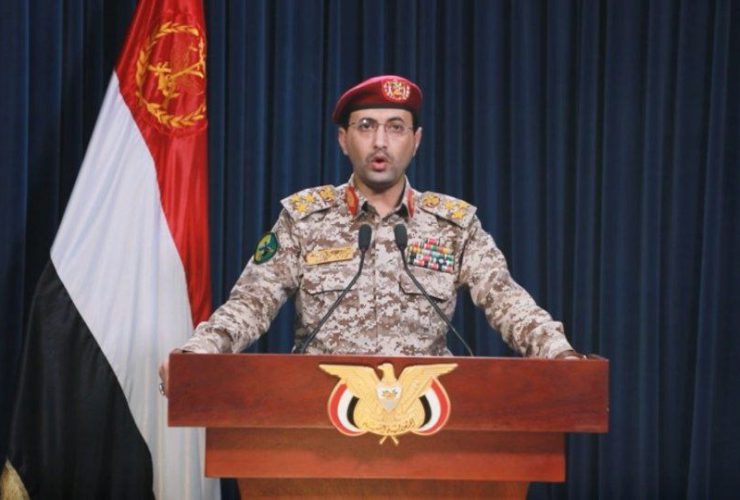Sheikh Ayman al-Zawahiri’s Return to the Media Scene
Ahead of the anniversary of the September 11 terrorist attacks, Al-Sahab jihadist media institution – the official communication wing of the Al-Qaeda leadership – announced the launch of an audio series containing interviews with Sheikh Ayman al-Zawahiri, the leader of Al-Qaeda, regarding the “Islamic Spring”. In the first audio clip, which was published on September 9, 2015, al-Zawahiri explained his intention to discuss the achievements of the Arab Spring as an important development in the realization of the vision of jihadist groups, such as the overthrow of several tyrannical Arab regimes. However, he noted that this issue would be addressed in subsequent parts of the series while the first part would be dedicated to several points:
A condemnation of Israel’s alleged attempts to Judaize Al-Aqsa Mosque. According to him, this constitutes a crime that cannot be ignored and that demands an immediate response from Muslims. He added that, for this purpose, there needs to be unity among Muslims in confronting the Crusader and Zionist enemy, especially in Syria since it is the gateway to conquering Israel and to liberating Al-Aqsa Mosque from the Jews.
- A eulogy in memory of Sheikh Mukhtar Abu al-Zubayr, the leader of Al-Shabab Al-Mujahideen who was killed in September 2014, and words of praise for his contribution to jihad in East Africa. In addition, al-Zawahiri praised the activities of the mujahideen in East Africa, encouraged them to continue to wage jihad until the implementation of shari’a in East Africa, and expressed support for the organization’s new emir, Abu Ubaydah Ahmad Omar.
- A eulogy in memory and praise of Muhammad al-Zahawi, the leader of Ansar al-Sharia in Libya, who was killed in January 2015.
- An acknowledgement of the efforts made by Nasir al-Wahishi, al-Zawahiri’s deputy and the leader of Al-Qaeda in the Arabian Peninsula (AQAP) who was killed this year, and Abu Mus’ab Abd al-Wadoud, the leader of Al-Qaeda in the Islamic Maghreb (AQIM), to end the rift and the fighting among jihadist groups in Syria and Iraq. According to al-Zawahiri, the person responsible for the split among the ranks of the mujahideen is Abu Bakr al-Baghdadi, the leader of the Islamic State who wrongly appointed himself Caliph of the Muslims. Al-Zawahiri emphasized that he asked all branches of Al-Qaeda not to fight against the IS, and he called on al-Baghdadi to extinguish the flames of conflict between the two organizations and to focus on the real enemy – including the French in the Maghreb, the Pakistani regime in Waziristan, the Russian regime in the Caucasus, etc. According to him, the demand for an oath of allegiance to al-Baghdadi from jihadists is not only illegal, it severely hampers efforts to fight against the enemy.
Al-Zawahiri even criticized al-Baghdadi’s audacity in challenging the legality of the Islamic Emirate of Afghanistan or the Islamic Emirate of the Caucasus. According to him, it is inconceivable that a Muslim leader would call to cancel or not recognize the oath of allegiance taken by millions of Muslims in the Indian subcontinent and other regions to the Islamic Emirate of Afghanistan. According to him, such behaviour is not befitting of a caliph.
Al-Zawahiri emphasized that he does not recognize the caliphate founded by al-Baghdadi since it was founded in sin and is not conducted in accordance with the path of the Prophet Muhammad, nor does he recognize al-Baghdadi’s title of Caliph since he is not fit for this position in light of his conduct. According to him, several religious clerics share this opinion, including Abu Qatada al-Filistini, Abu Muhammad al-Maqdisi, Hani al-Sibai and Tariq Abdul Haleem. Nevertheless, he emphasized that despite the differences of opinion between the organizations regarding the way in which the Islamic Caliphate should be re-established, they must maintain unity among the ranks. Moreover, he even hinted at his willingness to work together with the IS to fight against their enemies, including the Crusaders, the secularists, the Alawites and the Shi’ites.
- Praise for Al-Qaeda in the Indian Subcontinent for, among other things, two marine terrorist attacks that it carried out against Pakistani and American ships.
- An acknowledgement of the efforts made by Abu Muhammad al Dagestani (the Emir of the Islamic Caucasus Emirate who was killed this year), Abu Muhammad al-Maqdisi, Abu Qatada al-Filistini, Hani al-Siba’i, Tariq Abd al-Halim and Abu al-Mundhir al-Shinqiti to maintain unity among the ranks of the mujahideen in the arena of jihad in Syria. In addition, he thanked those who stood by his side in recent times.
- A call on Muslims to take action to free Muslim prisoners from jails around the world, be it in the West or Iraq or anywhere else, by kidnapping foreigners and conducting negotiations for prisoner exchanges. In this context, he praised Al-Nusra Front for adopting this strategy.[1]
The launch of this series is important in and of itself as it points to the continued presence of a guiding hand among the mujahideen. Moreover, al-Zawahiri’s return to the media scene after a nearly one-year long absence was designed to curb the strengthening of the Islamic State, which took advantage of al-Zawahiri’s absence to spread propaganda to undermine the Al-Qaeda leadership and reinforce the leadership of the Islamic State. It will be interesting to see in the next parts of the series how al-Zawahiri will refer to the importance of the Arab Spring as a platform for the realization of the jihadist agenda.






